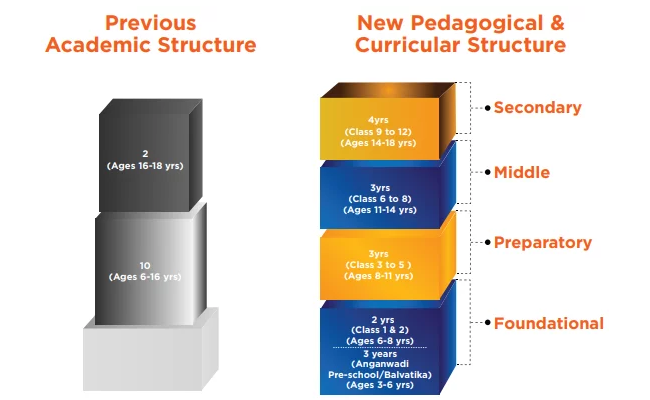Introduction:
The National Education Policy 2023 is a significant step towards the advancement of education in India. It is a comprehensive policy that aims to provide quality education to all and transform the country into a knowledge-driven society. The policy was approved by the Union Cabinet on March 23, 2023, and is expected to bring about a significant transformation in the education system in India.
Key Highlights:
The National Education Policy 2023 has many key highlights that are expected to revolutionize the education system in India. Some of the important highlights of the policy are:
- Universal Access to Education: The policy aims to provide universal access to education to all children from the age of three. It aims to provide free and compulsory education to all children up to the age of 18.
- Emphasis on Early Childhood Education: The policy recognizes the importance of early childhood education and aims to provide a strong foundation for children in their early years. It emphasizes the importance of play-based learning and the use of technology to enhance the learning experience.
- Multilingualism: The policy recognizes the importance of multilingualism and aims to promote the use of Indian languages in education. It encourages the teaching of at least two Indian languages in schools.
- Vocational Education: The policy emphasizes the importance of vocational education and aims to provide vocational education to at least 50% of all students by 2030. It also aims to provide internships and apprenticeships to students to enhance their skills.
- Technology in Education: The policy recognizes the importance of technology in education and aims to provide digital infrastructure and resources to all schools. It also aims to integrate technology into teaching and learning processes.
- Teacher Training: The policy recognizes the importance of teacher training and aims to provide professional development opportunities to teachers. It also aims to create a National Teacher Education Framework to standardize teacher training programs.
- Higher Education: The policy aims to transform higher education by promoting research and innovation. It also aims to provide greater autonomy to higher education institutions and encourage internationalization.
Benefits:
The National Education Policy 2023 is expected to bring about many benefits to the education system in India. Some of the benefits of the policy are:
- Quality Education: The policy aims to provide quality education to all students and ensure that they have the skills and knowledge required for the 21st century.
- Skill Development: The policy emphasizes the importance of skill development and vocational education. It aims to equip students with the skills required for employment and entrepreneurship.
- Multilingualism: The policy aims to promote multilingualism and encourage the use of Indian languages in education. This will help preserve and promote the rich cultural heritage of India.
- Teacher Development: The policy aims to provide professional development opportunities to teachers and standardize teacher training programs. This will help improve the quality of teaching and learning in schools.
- Research and Innovation: The policy aims to promote research and innovation in higher education. This will help India become a leader in innovation and technology.
Challenges:
While the National Education Policy 2023 has many benefits, it also faces some challenges. Some of the challenges that the policy may face are:
- Implementation: The successful implementation of the policy will require significant resources and coordination between various stakeholders. It may be challenging to ensure that the policy is implemented effectively and efficiently.
- Funding: The policy will require significant funding to provide universal access to education and enhance the quality of education. It may be challenging to ensure that adequate funding is available for the policy.
- Language Barrier: The promotion of multilingualism may face challenges due to the diverse linguistic landscape in India. It may be challenging to ensure that all students have access to education in their mother tongue.
![]()





